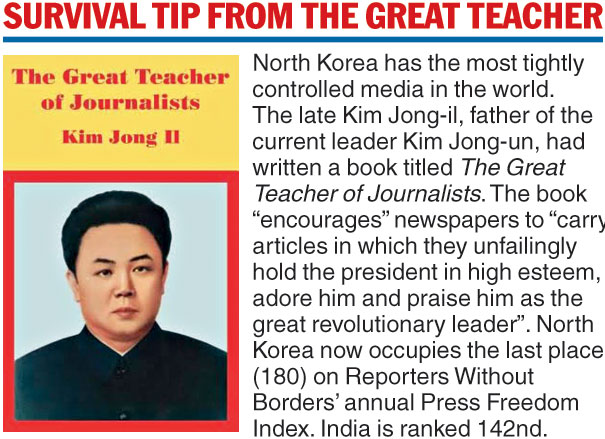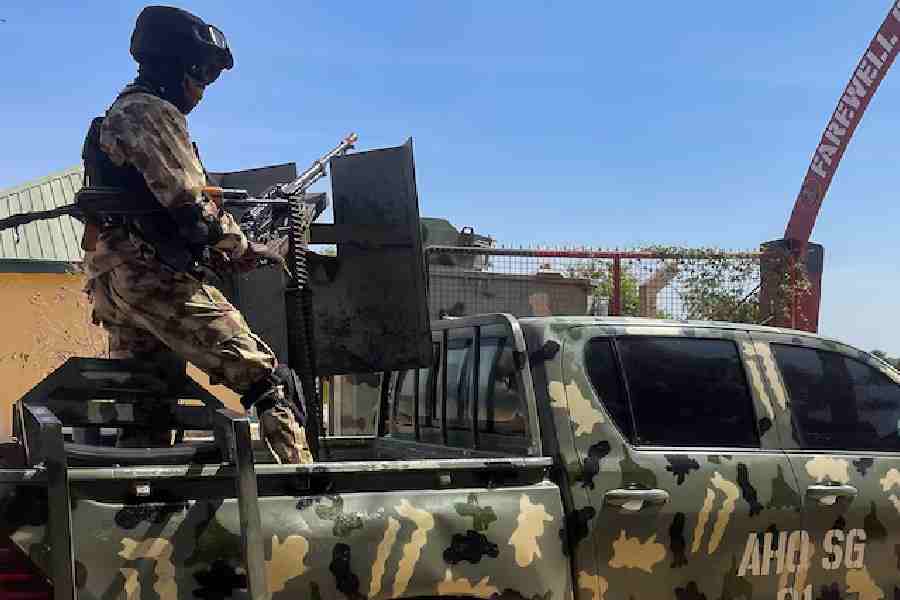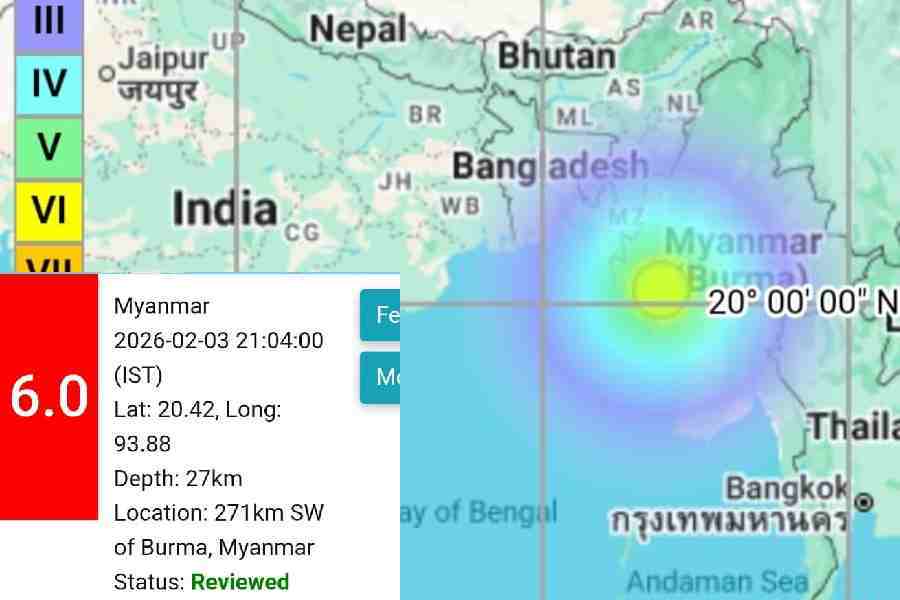Public broadcaster Prasar Bharati has suggested that the journalism practised by the Press Trust of India (PTI), India’s largest news agency, is “detrimental to national interest” and threatened to review the subscription to its news feed, multiple sources said on Saturday.
The implicit threat — a familiar feature in regimes run by autocrats and monarchies but not in democracies — came at a time the news agency has been under attack from Right-wingers over two back-to-back interviews with the Chinese and Indian ambassadors.
Prasar Bharati, which runs Doordarshan and All India Radio, is supposed to be an autonomous body.
The sources said Prasar Bharati’s letter mentions in the subject the words “not in national interest” and the text suggests some of the instances of reporting by PTI were “detrimental to national interest”.
The nebulous phrase “national interest” is an all-weather weapon deployed by authoritarian regimes to crush media that refuse to kowtow. The Narendra Modi dispensation has often been accused of equating “government interest” with “national interest”.
On Friday night, PTI had tweeted as well as sent a news alert that India’s ambassador to China, Vikram Misri, had expressed the hope that China would move “back to its side of LAC (Line of Actual Control)”.
The reference to the need to “move back” was at variance with Prime Minister Narendra Modi’s assertion on June 19 that “neither has anyone intruded into our frontier there, neither is any intruder there….”
Later at night, when PTI filed a report based on the interview more than an hour after its tweet and alert, the phrase “moving back to its side of LAC” was missing from the quote attributed to the ambassador.
The interview-based report quoted the ambassador as saying: “We hope that the Chinese side will realise its responsibility in de-escalation and disengagement.”
However, 24 hours after the first tweet, PTI had neither deleted it nor issued a clarification on the tweet which read: “India hopes China will realise its responsibility in de-escalation and disengaging by moving back to its side of LAC: Indian envoy to China.”
Till Saturday night, neither Misri nor his boss, foreign minister S. Jaishankar, had on record denied the quote that contradicts their boss, Prime Minister Modi.
Apart from the Misri interview with PTI, the government is understood to be upset with the agency for having interviewed the Chinese ambassador in New Delhi a day earlier on Thursday.
After the Chinese embassy put out a transcript of the interview, PTI drew flak from BJP supporters and some independent strategic analysts who wanted to know why no questions challenging the Chinese narrative had been posed to the ambassador.
PTI insiders said what the Chinese had circulated was a truncated version of the interview, denying the charge that the agency had allowed itself to become an “instrument of Beijing’s propaganda and info war”.
“Essentially, the government does not want us to provide any counterpoint. The government just wants its voice to be amplified. It resents any coverage that is given to the Opposition or anyone holding a view that is contrary to the government’s or the ruling party’s,” said a PTI journalist.

It is against this backdrop that word was spread on Saturday morning that Prasar Bharati had written to PTI. Propaganda bullies, who have been operating under the whispered euphemism “headline managers”, informed a few select journalists in the morning that Prasar Bharati had sent a “strong letter” to PTI to express “deep displeasure” at the agency’s “anti-national reporting”.
Other sources said the actual letter used the phrase “detrimental to national interest”, not the word “anti-national”.
The PTI board held a meeting later in the day. PTI is a trust managed by many newspapers.
The morning statement circulated among the group of journalists said it was “off the record” and “not for attribution”. Attempts by this newspaper for a comment from Prasar Bharati did not elicit any response. But through the day, Prasar Bharati desisted from distancing itself from the statement.
According to the “off-the-record” statement, it was no longer tenable for Prasar Bharati to continue its relationship with PTI. It stressed that the public broadcaster “has been supporting PTI with huge annual fees running into several crores”.
In 2017, a Congress leader had tweeted that Prasar Bharati paid PTI Rs 9.15 crore as annual subscription fee. Recent media reports have put the figure at Rs 6.75 crore.
Threatening to sever its links with PTI as the agency had not agreed to rationalise the subscription fees for several years now, Prasar Bharati in its letter informed the agency that it would take a call on the subject soon.
PTI insiders said that while Prasar Bharati was indeed a big subscriber, the matter was a commercial arrangement and not some kind of favour as the public broadcaster was making it out to be.
The effort to browbeat PTI into submission comes at a time when the government’s narrative is being punctured by satellite images indicating Chinese intrusion on the Indian side of the LAC and reports citing similar moves by China in other areas along the undemarcated border.
The propaganda bullies are said to have asked TV channels not to play up these satellite images and have begun providing background briefings to friendly journalists on the situation along the LAC instead of directly interacting with reporters covering the two ministries at the centre of it all – defence and external affairs.
In its first term, the Modi government had tried to foist a handpicked person as editor-in-chief of PTI but the board pushed back and went for a professional journalist who had worked in the agency in the past.
Through the Modi years, the government’s preferred agency has been ANI, and now speculation is rife that the younger wire service will be the beneficiary if Prasar Bharati decides to sever links with PTI.
Another agency waiting in the wings is the multi-lingual Hindusthan Samachar, founded by VHP founder S.S. Apte in 1948 and resurrected after the Modi government came to power in 2014.










